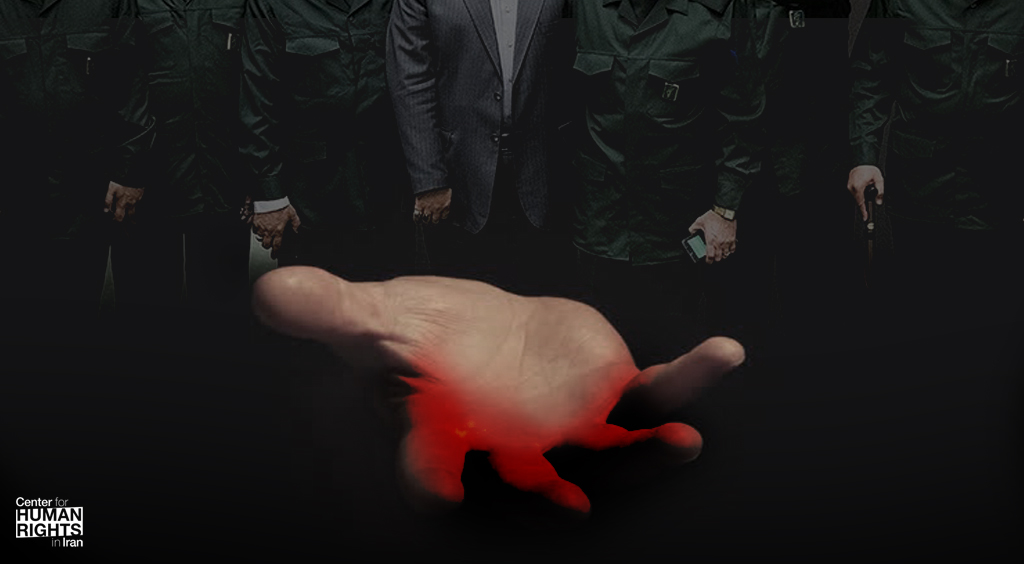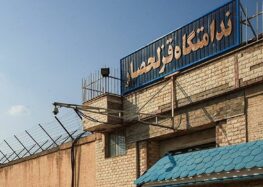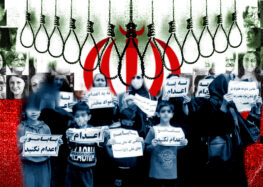New Interrogations at Iran’s Airports, Jailing of Dual Citizens Challenge Officials’ Calls for Expatriates to Return
 Reports of security agents at Tehran’s Imam Khomeini International Airport singling out travelers returning from European destinations to collect “financial and personal” information, and the ongoing unjust imprisonment of dual nationals in the country, challenge claims by Iranian officials that it’s safe for expatriates to return to Iran.
Reports of security agents at Tehran’s Imam Khomeini International Airport singling out travelers returning from European destinations to collect “financial and personal” information, and the ongoing unjust imprisonment of dual nationals in the country, challenge claims by Iranian officials that it’s safe for expatriates to return to Iran.
On January 15, 2022, an independent Persian news outlet reported that the travelers were pulled aside, taken to interrogation rooms at the airport and ordered to provide written information including their country of residence, income, and nationality on a “personal declaration” form.
The highly unusual practice, which enables Iranian officials to better track and monitor Iranians with foreign ties, occurred on January 5 and 7. The Center for Human Rights in Iran (CHRI) has since confirmed that it happened again at an Iranian airport on January 16.
The new procedure also further contradicts Iranian Foreign Minister Hossein Amir Abdollahian’s claim that “Iranian expatriates can travel to Iran without worrying…”
At least 16 dual nationals and one foreign national were known to be held in Iran (either imprisoned or under house arrest and prohibited from leaving the country) on trumped-up charges or without fair trials as of January 2022, according to research by CHRI.
The actual number of cases is expected to be higher; state officials pressure prisoners’ families to conceal their cases under false pretenses of securing their loved one’s release.
Iranian officials have publicly admitted that the government uses these individuals for prisoner exchanges without addressing the manufactured charges that the judiciary uses to officially prevent the individuals from leaving the country.
In January 2022, U.S. diplomat and former hostage in Iran Barry Rosen travelled to Vienna where Iran has been engaged in talks over its nuclear program to begin a hunger strike for the freedom of dual and foreign nationals unfairly detained in the country.
Officials Urge Return of Expatriates with False Promises
Since Iran’s 1979 revolution, which was followed by the migration of millions of Iranians to foreign nations and severe brain drain, every new Iranian president has begun his term with a broad invitation aimed at luring Iranians back to their homeland.
Yet none of these repatriation policies have succeeded due to “decades of poor governance, political repression, human rights abuses, bleak economic outlook, corruption, and socio-demographic factors,” according to the Stanford Iran 2040 Project.
Not only have expatriates who’ve returned learned that officials are not able to deliver on their promises of high-paying jobs and special privileges. They’ve also discovered that state security agencies, loyal to the conservative core of the ruling establishment, target Iranians with foreign ties including citizenship or education.
Indeed, numerous dual nationals who’ve returned to their country of birth have literally become “hostages” to Iran’s foreign policy and been detained or imprisoned under false and unproven claims of espionage.
Dual nationals recently imprisoned in Iran without due process include Iranian-Swedish dual national Habib Chaab, an Arab activist also known as Habib Asyoud; Reza Eslami, an Iranian-Canadian assistant professor of human rights and environmental sciences at Shahid Beheshti University in Tehran; Mehran Raoof, a British-Iranian and a labor rights activist; Kamal Alavi, a Swiss-Iranian businessman; Iranian-American businessman Emad Sharghi; German-Iranian dissident Jamshid Sharmahd; German-Iranian women’s rights activist Nahid Taghavi; British-Iranian civil engineer Anoosheh Ashoori; Austrian-Iranian businessman Massud Mossaheb; Iranian-born French scholar Fariba Adelkhah; British-Iranian researcher Nazanin Zaghari-Ratcliffe; Iranian-American businessman Siamak Namazi and his father Baquer Namazi, a former UNICEF representative; Iran, UK and US citizen Morad Tahbaz, a businessman and environmentalist; Swedish-Iranian scientist Ahmadreza Djalali; and Austrian-Iranian businessman Kamran Ghaderi.
Iran’s security forces have also abducted Iranian dissidents and critics of state policies from outside the country’s borders.
Dissident Ruhollah Zam was abducted by Iranian state agents during a trip to Iraq from his home in France and forcibly returned to Iran where he was tortured and later executed in December 2020 after a trial sorely lacking in internationally upheld standards of due process.
In July 2021, U.S. federal agents foiled an attempt by Iranian state agents to kidnap Iranian American dissident journalist and activist Masih Alinejad.
In addition, individuals who’ve simply traveled abroad to work or attend conferences or academic programs have been harassed, intimidated and imprisoned.
After working for Voice of America’s Persian-language television channel for several years, Kianush Sanjari was arrested after his return to Iran in 2015 and sentenced to 11 years in prison on national security charges. After serving nearly three years, he was released for medical reasons.
Satirist Keyomars Marzban, who had worked for foreign media outlets, was also slapped with a long prison sentence after returning to Iran in 2018. He was released after serving 2.5 years.
Women’s rights activist Alieh Matlabzadeh is currently serving a two-year prison sentence for participating in a women’s empowerment seminar in the Republic of Georgia.
Iranians are also aware of Alireza Golipour, who has unjustly been imprisoned in Iran for nearly a decade.
Golipour was a child prodigy who graduated from high school at the age of 14 and went on to complete a PhD program in Germany in the late 2000s. Before submitting his thesis, he was invited by Iranian officials to return to the country to participate in industrial projects.
Yet back in Iran he was pressured to work in Iran’s nuclear power industry and other sensitive national security projects, which he resisted.
Following his refusal, he was accused of espionage by an unnamed security agency and ultimately sentenced to 12 years in prison, even though the Intelligence Ministry has officially concluded he was not involved in spying activities. He has so far served nine years in Evin Prison.
Read this article in Persian






